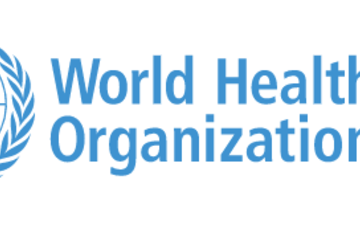Browse
Posted on: #iteachmsu

DISCIPLINARY CONTENT
What Is a Webinar?
What Is a Webinar?
A webinar is an online seminar that turns a presentation into a real-time conversation from anywhere in the world. Webinars allow large groups of participants to engage in online discussions or training events and share audio, documents or slides – even when they’re not in the same place as the meeting host or in the same room where the event or presentation is taking place.
A webinar is an online seminar that turns a presentation into a real-time conversation from anywhere in the world. Webinars allow large groups of participants to engage in online discussions or training events and share audio, documents or slides – even when they’re not in the same place as the meeting host or in the same room where the event or presentation is taking place.
Authored by:
Chathuri hewapathirana

Posted on: #iteachmsu


What Is a Webinar?
What Is a Webinar?
A webinar is an online seminar that turns a pres...
A webinar is an online seminar that turns a pres...
Authored by:
DISCIPLINARY CONTENT
Thursday, Apr 9, 2020
Posted on: #iteachmsu

ASSESSING LEARNING
Procrastination
The Best Definition Of Procrastination
Procrastination is the act of putting off work for no particular reason. Some guides and experts say that you’re procrastinating when you’re not doing a task that needs to be accomplished by a certain deadline.
That’s a false definition. It implies that we’re not procrastinating as long as we get the work done. If that’s true, most people don’t procrastinate. Which is of course not true.
In fact, a recent study I did with 2,219 respondents showed that 88% of all people admit to procrastinating at least one hour a day. That’s more accurate. Why? Because we all delay or postpone a task for no reason. Sometimes, we start a task or project, but we end up delaying the work. We don’t get it done.
Examples Of Procrastination
When you delay work for a good reason, you’re not procrastinating. What’s a good reason? When your work improves with the delay. Think of someone who needs to write a report but runs into a new challenge that must be included in the report. One can argue that the work will be better by spending more time on researching the new challenge.
However, most of our work does not get better by delaying it. If you want to go to the gym, your performance will not be better tomorrow. It will probably be worse because of entropy.
Two years ago, I gave a talk at Stenden University in The Netherlands. I mentioned my findings on procrastination to the professor who invited me. When I met him recently to discuss my next talk at the University, he shared a graph with me that says everything about a student’s behavior:
The University has an online application for students to practice for exams. The above graph shows how students at the beginning of the semester almost don’t practice at all.
You see a few spikes in the beginning, probably because the professor explained the online application. But after the initial period, the number of online exercises a student completes is zero.
Until four days before the exam. That’s when the exam comes close, which is when most students start panicking. Now, most of us form this behavior in college and remain working this way long after we’re graduated.
In the workplace, we procrastinate in the same way. How often have you delayed work on a project until the last minute? Again, this pattern is not only limited to education and work. In our personal lives, we do the same.
When are you submitting your yearly income taxes? Exactly, on the last day. Will we do a better job with our taxes on the last day? Probably not. I argue that we’re even more likely to make mistakes because of the time pressure.
Some people say that they love deadlines and claim that’s what fuels them to do good work. I know journalists who swear by it. But it’s not a sustainable way of living and working. When you’re close to your deadline, and you haven’t done anything, you experience more stress. While stress may improve your concentration, it also has negative effects on your long-term well-being.
Long-term, or chronic stress, can lead to depression, anxiety, heart disease, high blood pressure, abnormal heart rhythms, heart attacks, obesity, eating disorders, and a handful of other health problems1. Procrastination is not a problem we should take lightly.
Benefits Of Beating Procrastination
Procrastination is an inner struggle that can seriously destroy our overall well-being. There are three main benefits to beating procrastination:
Lower anxiety2—The more we procrastinate, and the longer we wait to get started with important things, the more anxiety and stress we have. Doing work is never easy. And if you wait until tomorrow, you will only feel more anxious about getting started. If you overcome procrastination and take immediate action, you will get things done. You remove the anxiety from that task before it gets to you.
Higher self-discipline3—Research shows that procrastination is not only a time-management problem. One of the biggest reasons we procrastinate is low self-discipline. The main benefit of beating procrastination is that you automatically increase your self-discipline.
Better work4—People who don’t procrastinate accomplish better work. When you work with less stress, anxiety, and high self-discipline, you give yourself the chance to do better work.
Most scientific research into procrastination focuses on the downside. The negative effects are clear. But the benefits are often not talked about. It should be clear that overcoming procrastination is the foundation of all achievement in life. Delaying important things is a destructive habit. In contrast, when you don’t delay tasks and take instant action, your well-being and work will improve.
Procrastination is the act of putting off work for no particular reason. Some guides and experts say that you’re procrastinating when you’re not doing a task that needs to be accomplished by a certain deadline.
That’s a false definition. It implies that we’re not procrastinating as long as we get the work done. If that’s true, most people don’t procrastinate. Which is of course not true.
In fact, a recent study I did with 2,219 respondents showed that 88% of all people admit to procrastinating at least one hour a day. That’s more accurate. Why? Because we all delay or postpone a task for no reason. Sometimes, we start a task or project, but we end up delaying the work. We don’t get it done.
Examples Of Procrastination
When you delay work for a good reason, you’re not procrastinating. What’s a good reason? When your work improves with the delay. Think of someone who needs to write a report but runs into a new challenge that must be included in the report. One can argue that the work will be better by spending more time on researching the new challenge.
However, most of our work does not get better by delaying it. If you want to go to the gym, your performance will not be better tomorrow. It will probably be worse because of entropy.
Two years ago, I gave a talk at Stenden University in The Netherlands. I mentioned my findings on procrastination to the professor who invited me. When I met him recently to discuss my next talk at the University, he shared a graph with me that says everything about a student’s behavior:
The University has an online application for students to practice for exams. The above graph shows how students at the beginning of the semester almost don’t practice at all.
You see a few spikes in the beginning, probably because the professor explained the online application. But after the initial period, the number of online exercises a student completes is zero.
Until four days before the exam. That’s when the exam comes close, which is when most students start panicking. Now, most of us form this behavior in college and remain working this way long after we’re graduated.
In the workplace, we procrastinate in the same way. How often have you delayed work on a project until the last minute? Again, this pattern is not only limited to education and work. In our personal lives, we do the same.
When are you submitting your yearly income taxes? Exactly, on the last day. Will we do a better job with our taxes on the last day? Probably not. I argue that we’re even more likely to make mistakes because of the time pressure.
Some people say that they love deadlines and claim that’s what fuels them to do good work. I know journalists who swear by it. But it’s not a sustainable way of living and working. When you’re close to your deadline, and you haven’t done anything, you experience more stress. While stress may improve your concentration, it also has negative effects on your long-term well-being.
Long-term, or chronic stress, can lead to depression, anxiety, heart disease, high blood pressure, abnormal heart rhythms, heart attacks, obesity, eating disorders, and a handful of other health problems1. Procrastination is not a problem we should take lightly.
Benefits Of Beating Procrastination
Procrastination is an inner struggle that can seriously destroy our overall well-being. There are three main benefits to beating procrastination:
Lower anxiety2—The more we procrastinate, and the longer we wait to get started with important things, the more anxiety and stress we have. Doing work is never easy. And if you wait until tomorrow, you will only feel more anxious about getting started. If you overcome procrastination and take immediate action, you will get things done. You remove the anxiety from that task before it gets to you.
Higher self-discipline3—Research shows that procrastination is not only a time-management problem. One of the biggest reasons we procrastinate is low self-discipline. The main benefit of beating procrastination is that you automatically increase your self-discipline.
Better work4—People who don’t procrastinate accomplish better work. When you work with less stress, anxiety, and high self-discipline, you give yourself the chance to do better work.
Most scientific research into procrastination focuses on the downside. The negative effects are clear. But the benefits are often not talked about. It should be clear that overcoming procrastination is the foundation of all achievement in life. Delaying important things is a destructive habit. In contrast, when you don’t delay tasks and take instant action, your well-being and work will improve.
Authored by:
John Perry

Posted on: #iteachmsu


Procrastination
The Best Definition Of Procrastination
Procrastination is the...
Procrastination is the...
Authored by:
ASSESSING LEARNING
Wednesday, Apr 8, 2020
Posted on: #iteachmsu

HealthyAtHome campaign begins
April 2020
WHO is providing advice to help you and your family be healthy at home, with tips on staying physically active, looking after our mental health, quitting tobacco and healthy parenting.
We are also encouraging people to share how they are staying #HealthyAtHome as part of our new challenge.
WHO is providing advice to help you and your family be healthy at home, with tips on staying physically active, looking after our mental health, quitting tobacco and healthy parenting.
We are also encouraging people to share how they are staying #HealthyAtHome as part of our new challenge.
Posted by:
Chathuri Super admin..

Posted on: #iteachmsu


HealthyAtHome campaign begins
April 2020
WHO is providing advice to help you and your famil...
WHO is providing advice to help you and your famil...
Posted by:
Monday, Apr 6, 2020
Posted on: #iteachmsu

DISCIPLINARY CONTENT
joint call to protect lives & livelihoods
WHO held a joint press conference with the International Monetary Fund (IMF), with IMF Managing Director Kristalina Georgieva speaking and taking questions.
The conference covered the profound economic impacts of the pandemic, highlighting the importance of debt relief to avoid economic collapse and social welfare programs to ensure people have essentials.
The conference covered the profound economic impacts of the pandemic, highlighting the importance of debt relief to avoid economic collapse and social welfare programs to ensure people have essentials.
Authored by:
Brian Patrick Collins

Posted on: #iteachmsu


joint call to protect lives & livelihoods
WHO held a joint press conference with the International Monetary F...
Authored by:
DISCIPLINARY CONTENT
Monday, Apr 6, 2020
Posted on: #iteachmsu

DISCIPLINARY CONTENT
MF and WHO make joint call to protect lives & livelihoods
WHO held a joint press conference with the International Monetary Fund (IMF), with IMF Managing Director Kristalina Georgieva speaking and taking questions.
The conference covered the profound economic impacts of the pandemic, highlighting the importance of debt relief to avoid economic collapse and social welfare programs to ensure people have essentials.
The conference covered the profound economic impacts of the pandemic, highlighting the importance of debt relief to avoid economic collapse and social welfare programs to ensure people have essentials.
Authored by:
WHO orgnization

Posted on: #iteachmsu


MF and WHO make joint call to protect lives & livelihoods
WHO held a joint press conference with the International Monetary F...
Authored by:
DISCIPLINARY CONTENT
Monday, Apr 6, 2020
Posted on: #iteachmsu

DISCIPLINARY CONTENT
venture capital :
Global warming is the mainly human-caused rise of the average temperature of the Earth's climate system and has been demonstrated by direct temperature measurements and by measurements of various effects of the warming.[5] It is a major aspect of climate change which, in addition to rising global surface temperatures,[6] also includes its effects, such as changes in precipitation.[7] While there have been prehistoric periods of global warming,[8] observed changes since the mid-20th century have been unprecedented in rate and scale.[9]
Authored by:
Chathuri hewapathirana

Posted on: #iteachmsu


venture capital :
Global warming is the mainly human-caused rise of the average ...
Authored by:
DISCIPLINARY CONTENT
Tuesday, Mar 31, 2020
Posted on: #iteachmsu


add vedio
checked the vedio :
Authored by:
Tuesday, Mar 31, 2020
Posted on: #iteachmsu

Description is the pattern of narrative development that aims to make vivid a place, object, charact
Description is the pattern of narrative development that aims to make vivid a place, object, character, or group. Description is one of four rhetorical mod
Authored by:
Tisond


